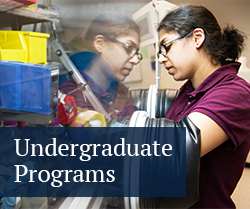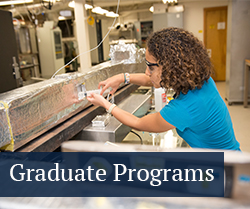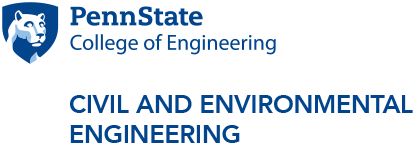Why Penn State?
Our curriculum provides a broad-based education in environmental engineering, geotechnical and materials engineering, structural engineering and mechanics, transportation engineering, and water resources engineering.
We accomplish this through a base of physics, mathematics, project management, design, and specific civil engineering-focused courses along with hands-on project-based learning and real-world experiences that prepare you for your career.
The civil engineering program at Penn State builds a strong foundation for the development of a professionally competent and versatile civil engineer.
Our graduates are trained to function in a traditional civil engineering environment as well as in a much broader global context.
Penn State CEs have established successful careers in design, construction, research, and education.
We have a number of professional societies for CEs that allow for students to explore civil engineering outside the classroom.
Students have access to speakers, career fairs, plant tours, conferences, competitions, professional contacts, leadership opportunities, and social events.
Our engineering co-ops and internships:
Integrate classroom learning with real-world experience
Our study abroad programs help students:
Gain a worldwide prospective as you develop foreign language skills, cultural understanding, and professional experience
Our graduate programs:
Broaden educational credentials and improve your marketability in the global workplace
Number of Penn State civil engineering degrees: 8,500+
Many of our alumni are now world-class leaders in their field and can be found in top offices at Gannett Fleming, Michael Baker International, Thornton Tomasetti, Allan Myers, Shell Oil, the United States Army Corps of Engineers, the Pennsylvania Department of Transportation, and the Federal Highway Administration.

Alison Willie
2016 CEE graduate
“I chose the Civil Engineering program at Penn State because it offered a wide variety of classes that allowed me to mold my engineering education to fit my needs. The faculty members were extremely helpful and gave me a great deal of valuable information about the different focus areas within civil engineering. Through their guidance and support, I was able to learn more about each area and hone in on the areas that interested me the most. I am confident that my classroom instruction, along with hands-on work through summer internships, have prepared me well for my future.”





